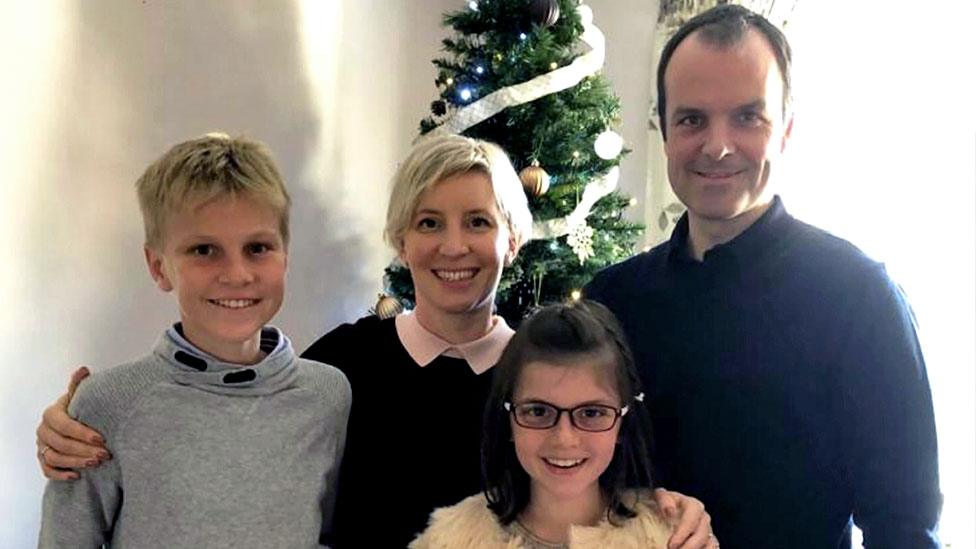UK warns against all but essential Sri Lanka travel
- Published
The father and brother of Amelie and Daniel Linsey, who died in the attacks, paid tribute to the teenagers
The UK is advising against all but essential travel to Sri Lanka after the Easter Sunday bombings in which about 250 people died.
The Foreign Office says, external terrorists are very likely to try to carry out indiscriminate attacks there, including in places visited by foreigners.
Eight Britons were among those killed by suicide bombers at churches and luxury hotels in the Sri Lankan capital Colombo, Negombo and Batticaloa.
More than 500 people were injured.
On Thursday, the Sri Lankan health ministry revised down the death toll by more than 100 to "about 253", blaming a calculation error.
BBC diplomatic correspondent James Robbins said the UK government was now talking to the travel industry about helping the 8,000 British tourists believed to be in Sri Lanka if they decide they want to cut short their visits.
The Foreign Office has issued advice to any Britons still in Sri Lanka:
Remain vigilant, keep up to date with developments and follow the advice of local security authorities and hotel security staff
Keep a low profile, avoid crowded public places, large gatherings, including religious gatherings and places of worship, and any demonstrations.
Avoid travelling during periods of curfew (other than to or from the airport)
Keep in touch with family and friends and make them aware of any plans you may have
Police in Sri Lanka are continuing to carry out raids and have issued photographs of seven people wanted in connection with the attacks. So far, more than 70 people have been arrested.
The authorities have blamed a local Islamist extremist group but say the bombers must have had outside help.
The Islamic State group said it carried out the attacks but provided no direct evidence.
Colombo Airport is operating but with increased security checks and long queues.

'An emotional few days'
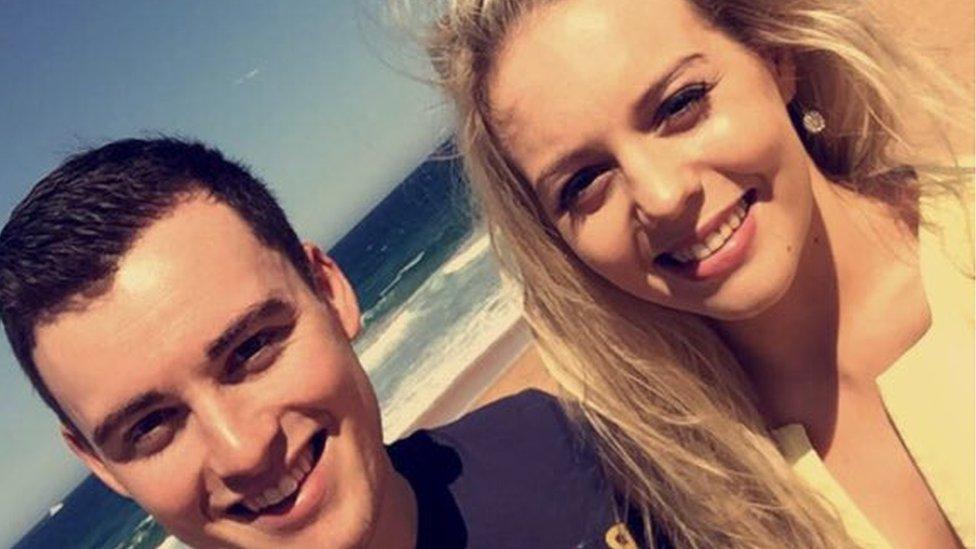
Trainee GP Amy, and her husband-to-be Ross, have cancelled their honeymoon to Sri Lanka
Amy Goodman, 27, from Armagh in Northern Ireland, was due to go to Sri Lanka, Dubai and the Maldives in June for her honeymoon with fiancé, Ross Kernan.
The couple had been booked to stay at the Cinnamon Grand in Colombo - one of the hotels which was bombed. But they have now cut out the Sri Lanka leg of her holiday - at the cost of £863 (€1,000).
"To think that the hotel we were due to be staying in a few weeks time got bombed and that that could have been us doesn't bear thinking about," said trainee GP Ms Goodman.
"It's been an emotional few days for us. I don't know how I would've felt travelling around Sri Lanka after what's happened. We could have been putting our lives at risk, anything could happen.
"We've been really lucky and have managed to get our trip changed for a fee."

Foreign Secretary Jeremy Hunt said he hoped to be able to change the travel advice once the current security operation had concluded.
"My first priority will always be the security of British citizens living and travelling abroad.
"We all hope the situation will return to normal very soon, and that the Sri Lankan tourism industry is able to get back on its feet following the terrorist attacks.
"We will do all we can to help the Sri Lankan authorities in the meantime," he added.
Travel expert Simon Calder said tourism was the third most important industry to the Sri Lankan economy, particularly in terms of employment and foreign exchange.
In 2017, more than two million tourists visited the island, an increase from fewer than half a million in 2009.
Sri Lanka's tourism sector was worth just $350m (£270m) in 2009, growing more than 10 times to be worth $4.4bn (£3.4bn) in 2018, according to figures from the Sri Lankan central bank, external.
According to ONS figures, £88m was spent on tourism in Sri Lanka in 2017 by UK residents, external, who made 86,000 visits.
Mr Calder told the BBC the UK travel warning would "send a signal to the rest of the world" and "almost certainly have a detrimental effect" on the industry.
He also pointed out that it can take years for a ban to be lifted. "It took two years for Tunisia to get off the no-go list," he said.
There will also be a short-term impact on the travel industry, he added.
"People that have a package holiday booked in the next few weeks will not be expected to travel and the travel company will have to make arrangements to give a full refund or provide an alternative holiday - it's your choice," he said.
However, travel trade organisation Abta said anyone who booked their flights and accommodation separately will need to discuss their options with the individual companies.
Holidaymakers with travel insurance may be able to claim for losses depending on the terms of their policy.
Tour operator Tui said it has started to contact customers in Sri Lanka and those due to travel in the next seven days to discuss travel arrangements.
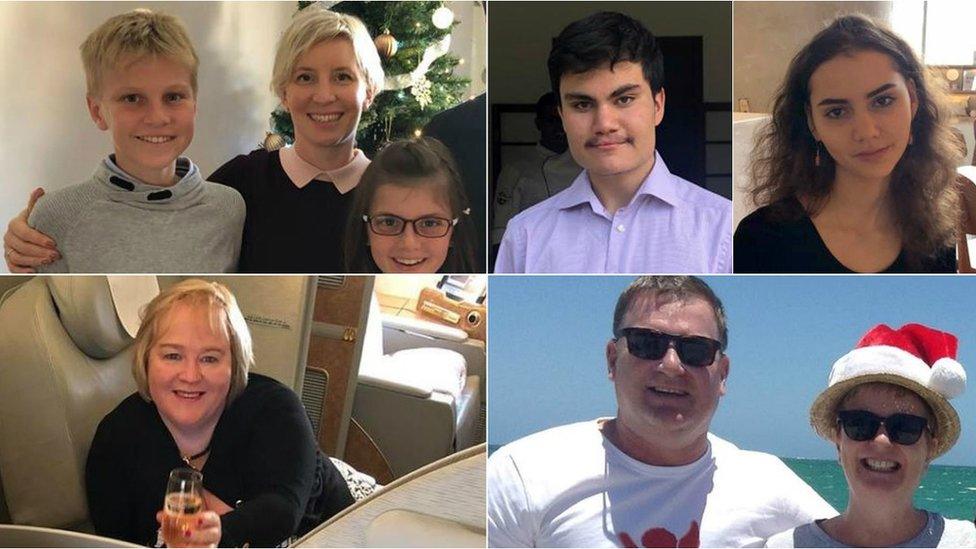
Eight Britons died in the attacks: Alex, Anita and Annabel Nicholson, Daniel and Amelie Linsey, Dr Sally Bradley and Bill Harrop, and Lorraine Campbell (clockwise from top left)
Among the victims of Sunday's bombings were Anita Nicholson and her children Annabel, 11, and Alex, 14, who were visiting Sri Lanka on holiday from their home in Singapore.
Dr Sally Bradley and William Harrop were also on holiday from western Australia where they were living.
IT director Lorraine Campbell, 55, from Greater Manchester, was staying at Colombo's Cinnamon Grand Hotel on a business trip when she died.
London siblings Daniel and Amelie Linsey died after their father tried to rescue them from one of the bombings.
In an interview with the BBC on Thursday, their brother, David, paid tribute to 15-year-old Amelie, who was "beautiful in every way" and "always a daddy's girl".
His 19-year-old brother, Daniel, lived his life in the service of other people and would always go out of his way for others, David said.
Their father, Matthew Linsey, said he wanted the UK government to bring their bodies back to the UK as soon as possible. "We want to reunite them with their family," he said.
A team of family liaison officers has been sent to Sri Lanka to support the families of British victims and help repatriate the deceased.
- Published25 April 2019
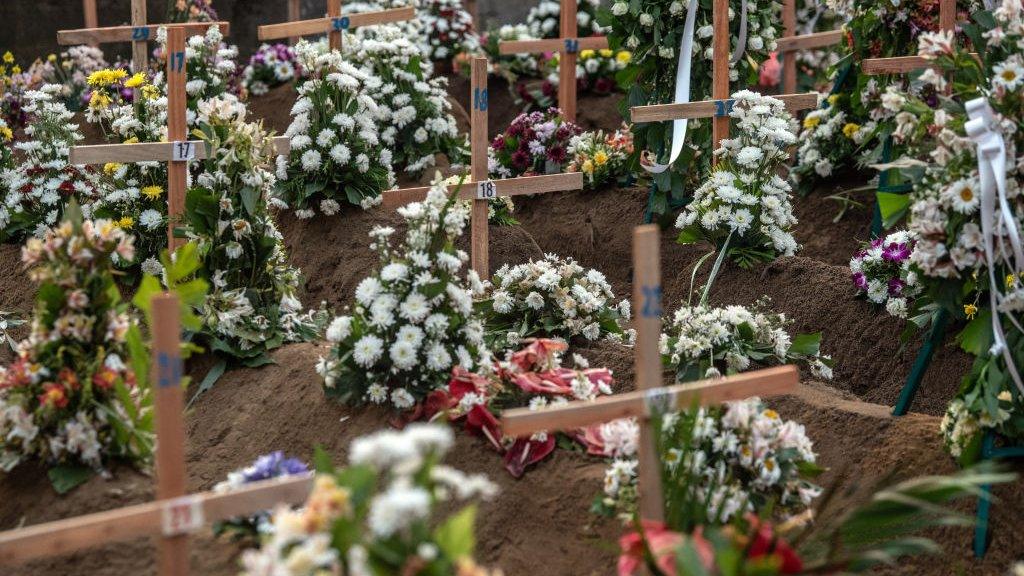
- Published24 April 2019
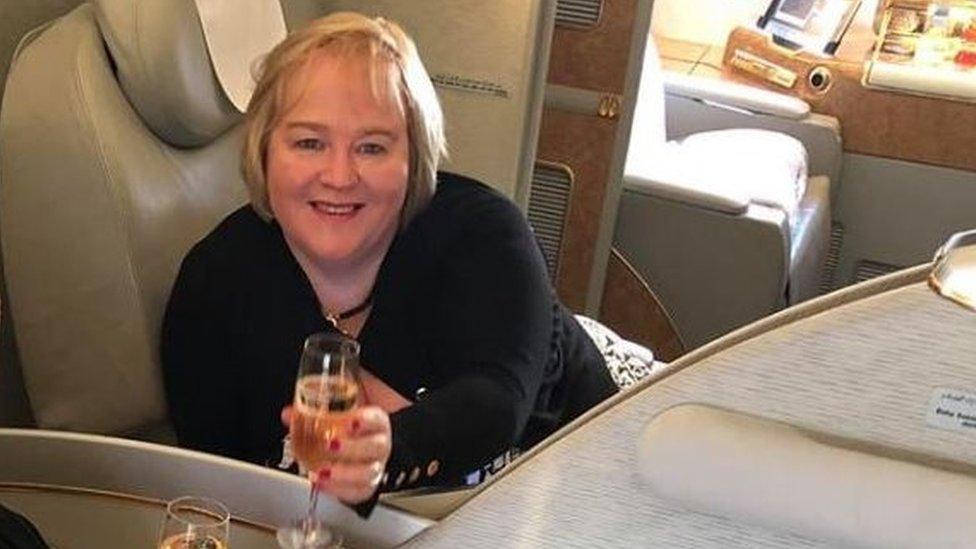
- Published23 April 2019
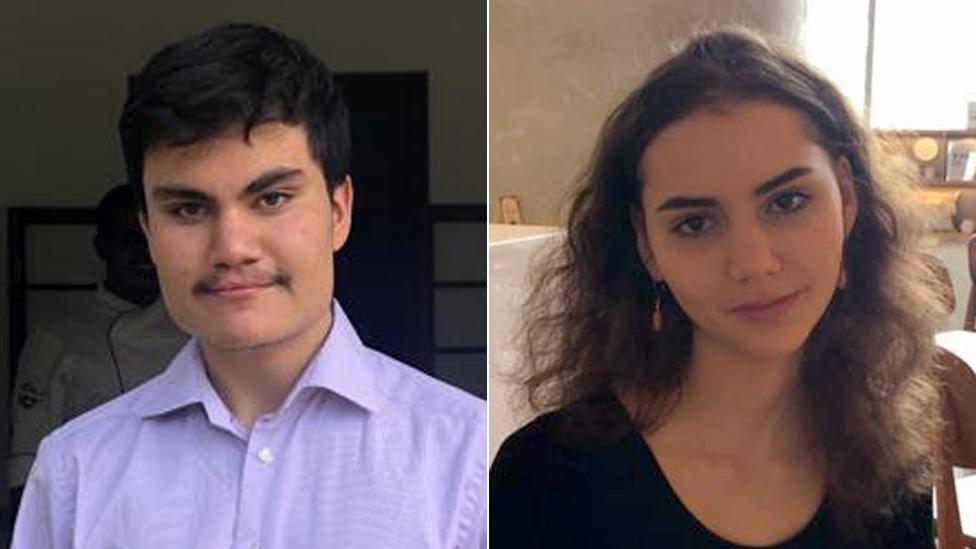
- Published23 April 2019
